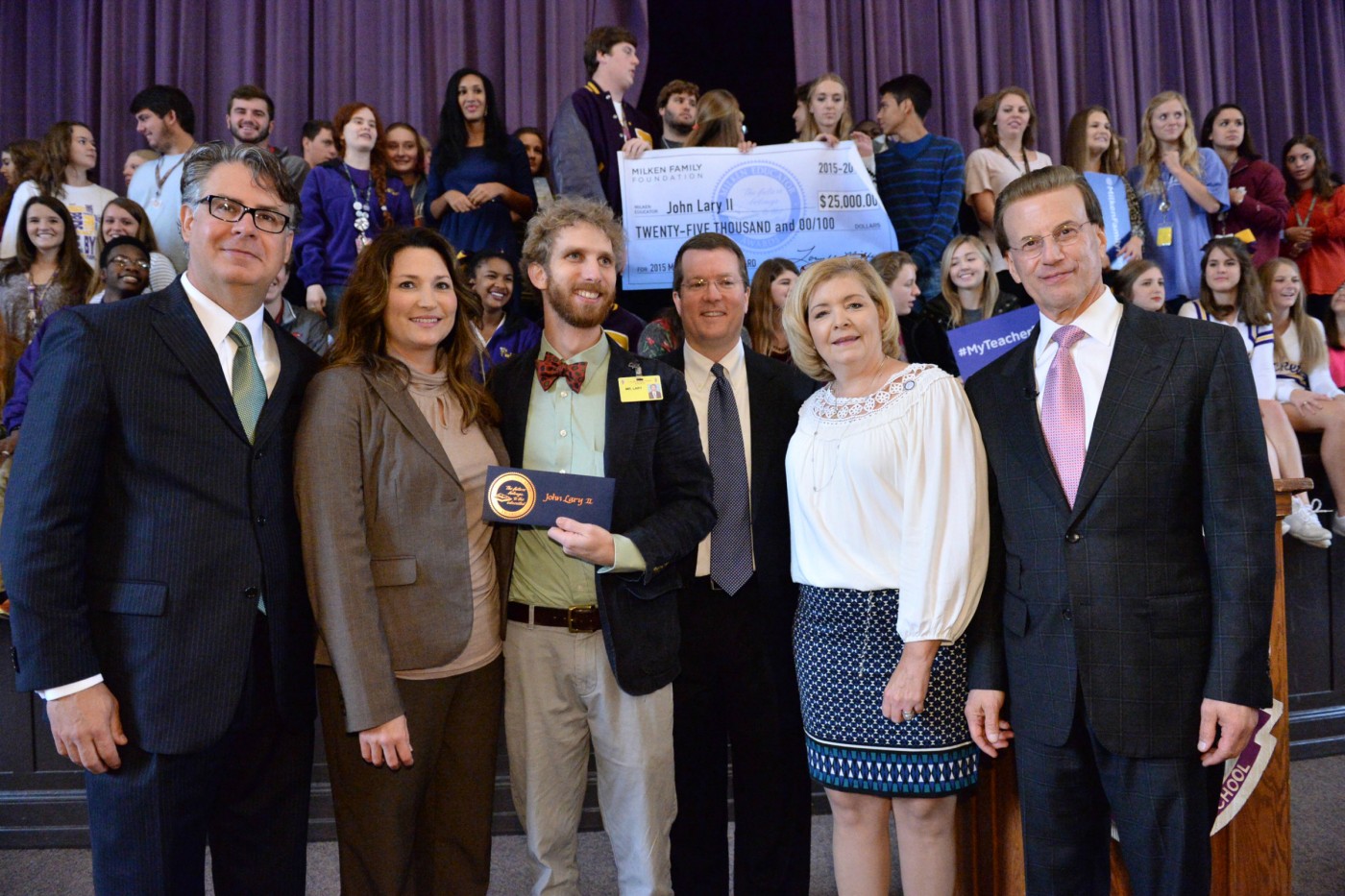By John Lary
As the school year shifts into full swing, the national teacher shortage in the US continues to make headlines across national news outlets. The data across the country shows that there are thousands of unfilled vacancies. Multiple factors, including retirements, resignations, newly created positions, fewer college students majoring in education, and fewer applicants for open positions, especially in rural areas and high-needs subjects are all part of this puzzle.
Multifaceted problems require complex and multifaceted solutions. Many states are developing teacher apprenticeships and alternative certification routes to streamline the process for those who are considering a career change to education. Universities, public school districts, and private organizations are encouraging current students to consider majoring in education to fix the broken pipeline. States and districts have attempted to boost pay, give one-time bonuses or offer signing incentives to hire and retain teachers. Many leaders, including Secretary of Education Dr. Miguel Cardona and First Lady Dr. Jill Biden, have spoken about the necessity to increase the respect and prestige (and pay) of the teaching profession to encourage more potential educators to see it as a viable option.
As a classroom teacher in Louisiana for the last 15 years, I have had many conversations with students and colleagues about why someone should enter this amazing profession and why they should stay. It is only one small piece of the large puzzle, but I believe remembering these points and sharing them in conversations with colleagues and students is something all teachers can do to play a part in solving the teacher shortage.
Here are two discussion points that I hold close to my heart and share with students to encourage them to choose the profession that creates all others:
The joy of teaching and learning.
While working as a teaching assistant pursuing my master’s degree at Louisiana Tech University, the Dean of the College of Liberal Arts gave me an article written by Stephen Ambrose entitled “The Joy of Learning.” As a future history teacher, it sang to my soul. Ambrose argued that the joy of learning is found not in the achievement of grades or acceptance into a university or even the being offered a job; instead, the joy of learning is found in the enjoyment of life.
Those who know more about the world around them have the capacity to find more joy in their lives. Those who have learned and continue to learn have the ability to discover the joy of an excellent novel or biography, a tour of a museum, a visit to a foreign country, or a national park. A student from the class of 2020 wrote me an email following my final virtual lecture in that wild roller coaster of a semester in which she said, “Last summer as I stared up at [Michelangelo’s] David, it amazed me, yes, but not as much as it does now.” She had traveled to Florence, Italy, and had an incredible trip, but she found even more joy and excitement and amazement after taking AP European History because she knew more. She continued, “when you visit a place with so much historical meaning, it means nothing to you without the knowledge of it. A pretty building, statue, bridge, or palace is just that, pretty, unless you know the King that lived there, the architect or artist that created it, the peasants that revolted in front of it, and so on.”
Knowledge of ecology, geology, and biology greatly enhances your experience at a national park, and knowledge of physics and astronomy and mythology changes the way you look at the night sky. The great Greek philosopher and teacher Socrates said, “The unexamined life is not worth living.” Our job as teachers is to help our students examine their lives and the world around them. We have the incredible privilege and opportunity to guide them on voyages of self-discovery and the pursuit of knowledge to improve their lives. What better way to spend my days and life than sharing that joy!
As an educator, I have the incredible joy of getting to model and demonstrate that joy for my students and to inspire them to choose that joy every day of their lives. I certainly would not want to overstate my influence on my students, but I do earnestly hope that even if they have forgotten some of the content they learned in my classroom that they will not forget the joy of learning and continue on as a life-long seeker of knowledge and joy.
The power to change the world.
Certainly, the joy of a life well-lived is an incredible gift to give to our students. But the gift of education extends beyond the individual lives of the students we have in our classrooms. Nelson Mandela said, “Education is the most powerful weapon you can use to change the world.” As a teacher, I have the power to change the world! Through content lessons and life lessons, teachers impart to their students new ways of thinking and assessing the world around them. We encourage students to evaluate problems and seek solutions. We help to create the next generation of individuals who will change the world.
As a history teacher, I often discuss the concept of historical agency, the idea that individuals have been agents of change and have molded their worlds and changed the course of history. The power of a single focused and dedicated individual to change the world is seen again and again in our history books and lessons, as well as in the lesser-known and unsung heroes that can inspire students to become change agents for a better future. As a 2016 fellow at the Lowell Milken Center for Unsung Heroes, I explored the power of education and the educator to highlight role models and inspire students to see themselves as future heroes. Many of my students engaged in project-based learning to discover an unsung hero, locally or abroad, recent or from the distant past, who became a shining example for the students to look to see their own power to repair the world. Two students discovered Gerdur Steinthorsdottir, an Icelandic woman who helped organize and lead the Women’s Day Off in 1975 to fight for equality for women. Another group examined Hugh Walmsley, the manager of the interstate bus terminal in Shreveport who desegregated his station in accordance with federal law but was arrested by the local sheriff. The sheriff’s name is on a major road in town. Hugh Walmsley’s name is largely unknown. Through these projects, students learned about the ways that individuals can fight to create a more just world.
Beyond the historical examples, educators provide students with opportunities to learn and understand the complexities of our world, become acutely aware of the issues we face, and develop and enact plans to bring about solutions. In 2019, students and teachers at C.E. Byrd High School in Shreveport, Louisiana planted a community garden that quickly grew into a hydroponics lab. Fresh produce grown in the gardens by the club “Growing for Good” are donated to area food banks to guarantee that the food-insecure in our area have access to fresh and healthy foods. Additionally, students and teachers can purchase fresh-picked salads every day.
These kinds of projects to meet local needs and make the world a better place are happening at schools across the nation and the world. A 2022 graduate of Byrd wrote a note at the end of the year and said, “I hope to one day be one of the people in the history you teach! I will make a great change in this world for the better!” As teachers, we are commissioned to empower the next generation of individuals who will transform the world.
There are certainly significant issues that need to be resolved in education to create a sustainable pipeline of future educators and guarantee highly qualified educators in front of every student. There are no simple solutions. And by no means am I suggesting that teachers should ignore or accept the inherent problems in our profession because of the personal value and reward that can be found in our work. However, when I consider the joy of learning and the power of education to change the world, I cannot help but share that joy and encourage others to take on this gargantuan and rewarding task. It is important to remember for ourselves and to share with others the powerful work we do. Educators have the unique opportunity to empower our students to achieve their dreams and I couldn’t imagine doing anything else.









